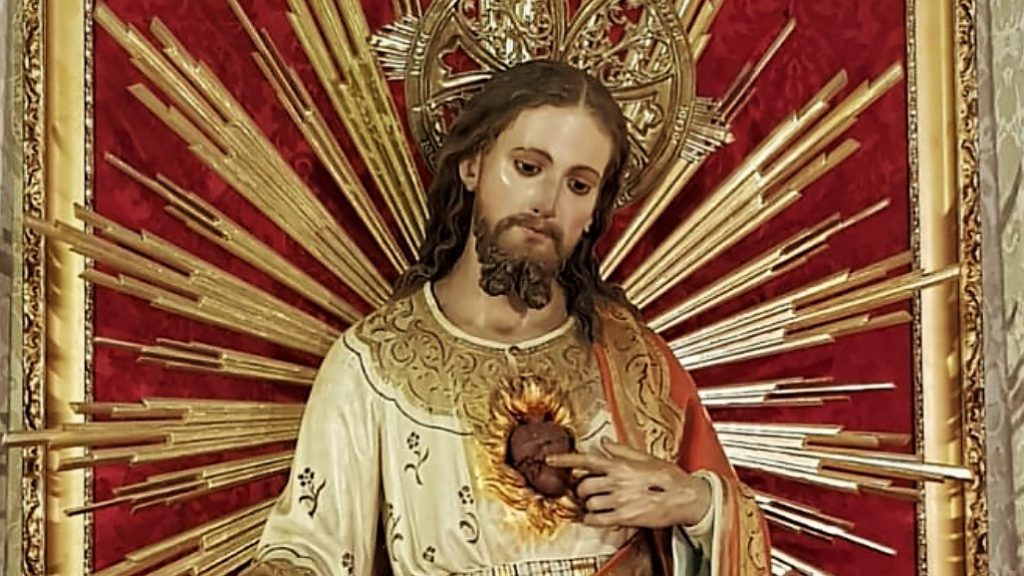DAILY GOSPEL COMMENTARY . THE PARABLE OF THE FAITHFUL AND PRUDENT STEWARD (Lk 12:39–48).

THE PARABLE OF THE STEWARD
Jesus said to his disciples: “Be sure of this: if the master of the house had known the hour when the thief was coming, he would not have let his house be broken into. You also must be prepared, for at an hour you do not expect, the Son of Man will come.”
Then Peter said, “Lord, is this parable meant for us or for everyone?” And the Lord replied, “Who, then, is the faithful and prudent steward whom the master will put in charge of his servants to distribute the food allowance at the proper time? Blessed is that servant whom his master on arrival finds doing so. Truly, I say to you, he will put him in charge of all his property. But if that servant says to himself, ‘My master is delayed in coming,’ and begins to beat the menservants and the maidservants, to eat and drink and get drunk, then that servant’s master will come on an unexpected day and at an unknown hour and will punish the servant severely and assign him a place with the unfaithful. That servant who knew his master’s will but did not make preparations nor act in accord with his will shall be beaten severely; and the servant who was ignorant of his master’s will but acted in a way deserving of a severe beating shall be beaten only lightly. Much will be required of the person entrusted with much, and still more will be demanded of the person entrusted with more.”
Gospel Commentary by Francisco Varo
Making use of examples taken from daily life, our Lord reminds the Apostles to be awake and watchful.
- Benedict XVI said: “This vigilance means, on the one hand, that man does not lock himself into the here and now and concern himself only with tangible things, but that he raises his eyes above the present moment and its immediate urgency. Keeping one’s gaze freely fixed upon God in order to receive from him the criterion of right action and the capacity for it—that is what matters. Vigilance means first of all openness to the good, to the truth, to God, in the midst of an often meaningless world and in the midst of the power of evil. It means that man tries with all his strength and with great sobriety to do what is right; it means that he lives, not according to his own wishes, but according to the signpost of faith.”[1]
Jesus explains this with his parables of the vigilant servants (Lk 12:35-40) and the faithful and wise steward (Lk 12:42-48).
- Both the word “servant” (doulos, in Greek) and “steward” (oikonomos), are terms used by the early Church for those who need to look after their brothers and sisters in the faith with special care.
- Thus Saint Paul introduces himself as “Paul, a servant of Jesus Christ, called to be an apostle” (Rom 1:1). He wants the faithful to see the apostles “as servants of Christ and stewards of the mysteries of God” (1 Cor 4:1). And as Jesus makes clear in his parable, “it is required of stewards that they be found trustworthy” (1 Cor 4:2).
Among the duties of a faithful steward, Jesus highlights that of distributing the “portion of food at the proper time” (v. 42).
- Quite likely, this is not only a question of bodily nourishment, but a veiled reference to the Eucharist. The principal task of the apostles’ successors and their co-workers in the priesthood is without doubt to make available to the Christian people nourishment for their souls.
The glorious coming of Christ to judge the living and the dead shouldn’t be viewed with fear by those who have been faithful servants, since the Master “will gird himself and have them sit at table, and he will come and serve them” (v. 37).
- This should give us, Benedict XVI says, “the certainty of hope that God will wipe away every tear, that nothing meaningless will remain, that every injustice will be remedied and justice restored. The triumph of love will be the last word in human history.”[2]
[1] Joseph Ratzinger-Benedict XVI, Jesus of Nazareth. From the Entrance into Jerusalem to the Resurrection, Ignatius Press 2011, pp. 287-288.
[2] Ibid., p. 287.
SOURCE: Excerpt from https://opusdei.org/en/gospel/commentary-on-the-gospel-the-faithful-and-wise-steward/
Commentary by Prof. Francisco Varo. EMPHASIS MINE.
VIDEO COMMENTARY
TOPIC: Are you God’s agent of unity?
In today’s reading (Ephesians 3:2-12), St. Paul writes and reiterates to the Ephesians how God has chosen him, sinner and persecutor of Christians to a great commission. He writes about the “stewardship of grace” that was given to him on the road to Damascus where God struck him down with a blinding light for him to see the light and do the unimaginable – to unite both the Jewish Christians and the Gentiles, or pagans, to become one church. As you know, the Jews ostracized and belittled the Gentiles throughout history and were never treated as co-equals. In today’s gospel (Luke 12:39-48), Jesus tells his disciples, through a parable, to be always ready for His coming because He will surely, at the most unexpected time. We, too, having been recipients of this great revelation of Jesus through the centuries, must be agents of unity in the world because this is what God desires. His commandment of love is what will make peace reside in our hearts and make us credible witnesses to unify the world.
Stay updated: subscribe by email for free TO OUR NEW WEBSITE www.catholicsstrivingforholiness.org (PUT YOUR EMAIL IN THE SUBSCRIBE WIDGET).
We are also in www.fb.com/Catholicsstrivingforholiness. Kindly help more people in their Christian life by liking our page and inviting your family, friends and relatives to do so as well. Thanks in advance and God bless you and your loved ones! Fr. Rolly Arjonillo


